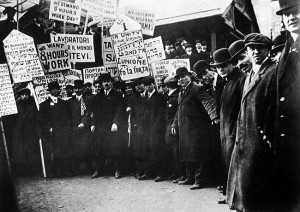By Sanam Amin – Sanam is a Kent Law School LLM Student
 On 23 February, Dr Vidya Kumar gave a lecture on labour rights as the second part of a series of guest lectures in the International Human Rights Law module. Dr Kumar’s lecture focused on the current repackaging of labour rights as human rights. The lecture was based on her recent essay ‘Rethinking the Convergence of Human Rights and Labour Rights in International Law: Depoliticisation and Excess’, included in the collection Law in Transition: Human Rights, Development and Transitional Justice, edited by Ruth Buchanan and Peer Zumbansen and published in 2015.
On 23 February, Dr Vidya Kumar gave a lecture on labour rights as the second part of a series of guest lectures in the International Human Rights Law module. Dr Kumar’s lecture focused on the current repackaging of labour rights as human rights. The lecture was based on her recent essay ‘Rethinking the Convergence of Human Rights and Labour Rights in International Law: Depoliticisation and Excess’, included in the collection Law in Transition: Human Rights, Development and Transitional Justice, edited by Ruth Buchanan and Peer Zumbansen and published in 2015.
Dr Kumar began by pointing out that what is meant by ‘human rights’ structures the relationship between labour rights and human rights. Human rights in its present form came to replace the old ‘rights of man’, a shift that took place as recently as the 1940s. ‘Human rights’ can mean rights recognised by law, or the rights existing outside of law. There is a pre-legal meaning, or philosophy of human rights which presents them as the rights that humans have by being human. These rights can then be legalised by recognition in national or international law, but pointing to a document shows what has been codified, not what has been legalised, or more precisely, doesn’t reveal their pre-legal conceptualization. For instance, the Universal Declaration of Human Rights lists human rights, but doesn’t define them or offer clear criteria to distinguish them from other types of rights.
There were several points of difference between labour rights and human rights, from their historical origins to their conceptual dissonance. Human rights discourse frames the state as the potential enemy or antagonist of individuals, and as a result, is concerned mostly with public law. Labour rights looks at specific actors with a particular purpose: the state is viewed as less of an enemy to workers than private power or capital. Importantly, the fundamental purpose of labour law is the improvement of the hierarchical relationship or subordinate position that workers have to the employers, not to eliminate this hierarchy or emancipate the worker. Labour law’s subject is a broad spectrum of workers linked by their past, present, and future labouring, and the law is designed to support workers in an unequal bargaining structure. Since the state is not necessarily the primary employer, and employment contracts are governed by common law or contract law, much of labour rights’ matter is found in private law. Human rights’ starting point is that all human beings are equal, while labour rights’ starting point is the unequal relationship between workers and employers. Further dissonance is seen in the language of human rights, which does not acknowledge a right to strike in any of the core human rights treaties.
Although the relation between human rights and labour rights is an area that labour lawyers continue to debate, this discussion seems to be lost when labour rights are converged with human rights and take on the latter’s language. The convergence or merger has implications for class politics. If class is removed, and if everyone has a right to strike, then in theory, the Queen of England too has a right to strike. During the seminars that followed her lecture, Dr Kumar also touched upon the history of the International Labour Organization which, according to historical accounts, was founded as a response to the fear of the spread of revolution at the turn of the 20th century. This and other historical aspects of the labour rights discourse disappear in the merger with human rights, as do the shifts in approaches to labour issues in the past century. For instance, unemployment, and reducing unemployment, is seen as a state obligation under Article 23 of the Universal Declaration of Human Rights, but its interpretation has seen great variation in places and in time.
The lecture and the seminar discussion that followed were rich and thought provoking. Other students and I carried over some arguments from Dr Kumar’s talk in the seminar for the Labour Rights in a Global Economy module. In particular, we appreciated her point about formerly colonised countries being left with infrastructure that is geared towards extracting its resources, thereby often leaving the use of railroads and ports to the same purpose in a newly independent nation. Dr Kumar’s essay and lecture linked postcolonial issues with labour and human rights discourse, which is a perspective that does not often come up in the mainstream academic discourse on labour rights. The guest lecture series has so far enabled us to benefit from provocative and current research in specific areas of human rights law.
